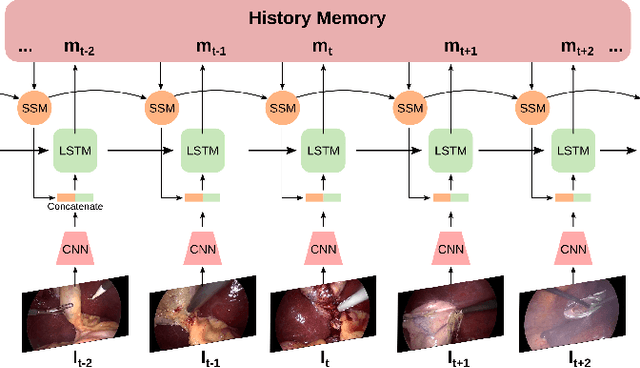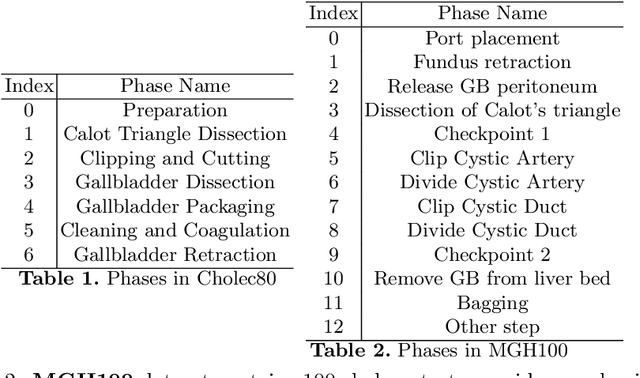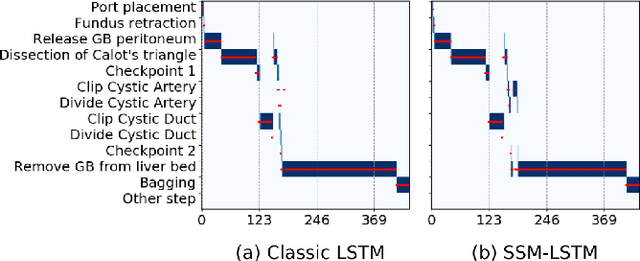Aggregating Long-Term Context for Learning Surgical Workflows
Paper and Code
Sep 11, 2020



Analyzing surgical workflow is crucial for computers to understand surgeries. Deep learning techniques have recently been widely applied to recognize surgical workflows. Many of the existing temporal neural network models are limited in their capability to handle long-term dependencies in the data, instead of relying upon strong performance of the underlying per-frame visual models. We propose a new temporal network structure that leverages task-specific network representation to collect long-term sufficient statistics that are propagated by a sufficient statistics model (SSM). We leverage our approach within an LSTM back-bone for the task of surgical phase recognition and explore several choices for propagated statistics. We demonstrate superior results over existing state-of-the-art segmentation and novel segmentation techniques, on two laparoscopic cholecystectomy datasets: the already published Cholec80dataset and MGH100, a novel dataset with more challenging, yet clinically meaningful, segment labels.
 Add to Chrome
Add to Chrome Add to Firefox
Add to Firefox Add to Edge
Add to Edge